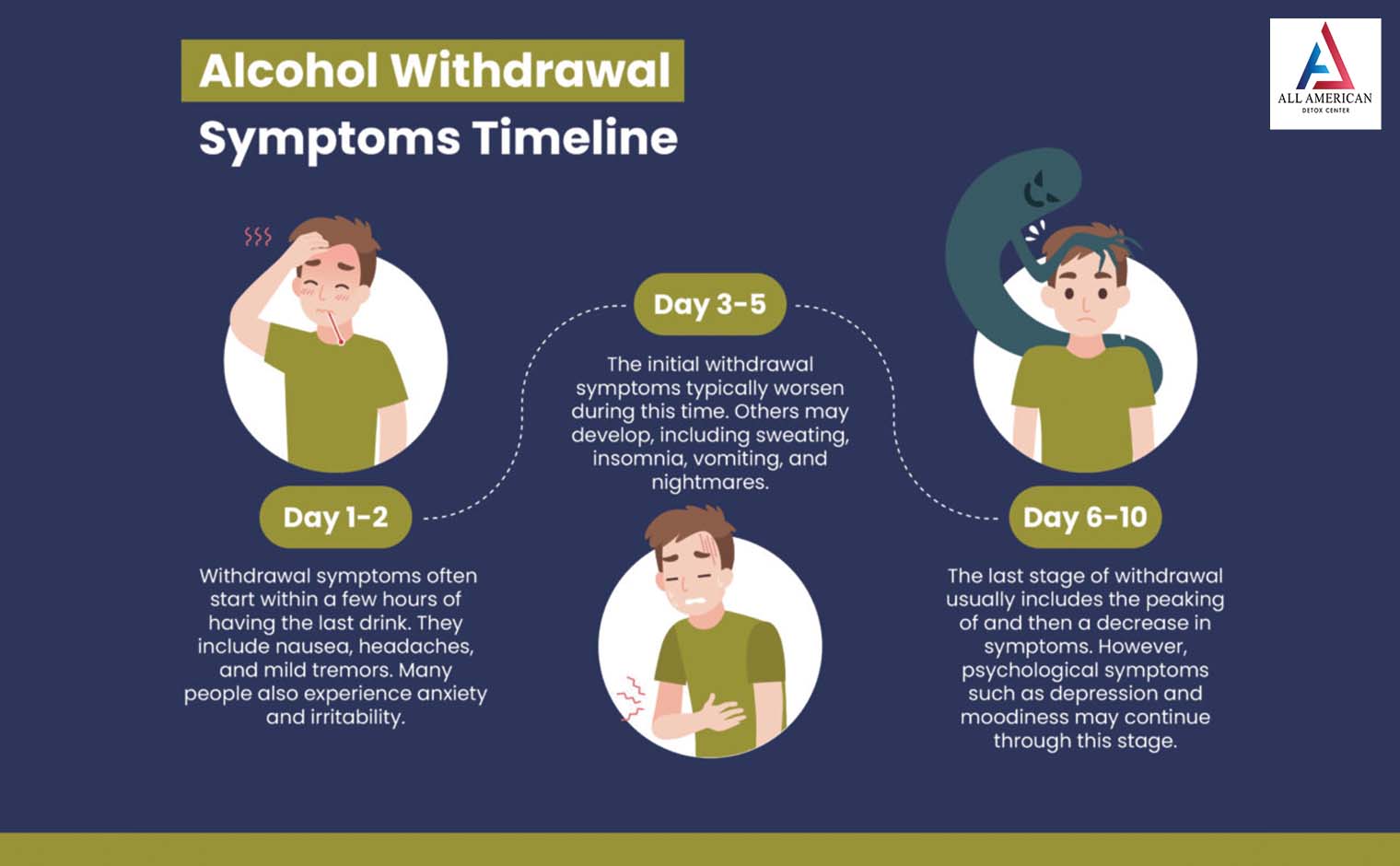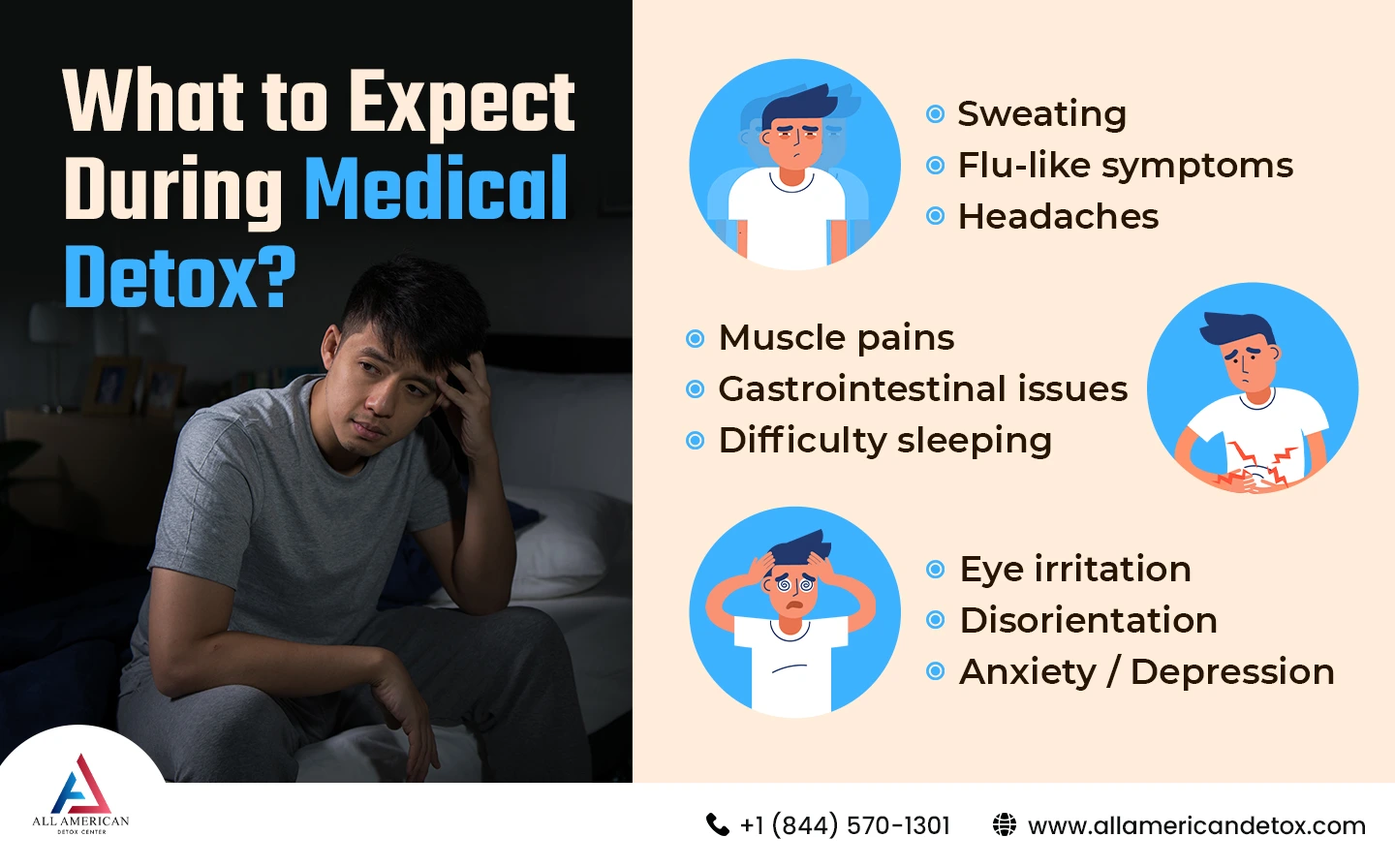When it comes to detoxification from substance abuse, addressing co-occurring mental health disorders is crucial for achieving lasting recovery. At All American Detox, we understand the complex interplay between substance abuse and mental health issues and offer comprehensive detox programs that prioritize dual diagnosis treatment. Co-occurring disorders, such as depression, anxiety, PTSD, bipolar disorder, and schizophrenia, can significantly impact a person’s ability to overcome addiction. Our approach to detoxification involves addressing both the physical and psychological aspects of substance abuse, providing individuals with the tools and support they need to achieve sobriety and mental wellness.
Understanding Co-occurring Disorders
Co-occurring disorders, also known as dual diagnosis or comorbidity, refer to the simultaneous presence of substance abuse and mental health disorders. These conditions often exacerbate each other, leading to a cycle of self-medication, addiction, and worsening mental health symptoms. For example, individuals struggling with depression may turn to drugs or alcohol as a way to cope with their symptoms, while substance abuse can trigger or worsen symptoms of anxiety or psychosis. Recognizing and addressing co-occurring disorders is essential for successful detoxification and long-term recovery. At All American Detox, we conduct thorough assessments to identify co-occurring disorders and tailor our detox programs to meet each individual’s unique needs.
Comprehensive Assessment and Dual Diagnosis Treatment
Our detox programs begin with a comprehensive assessment to evaluate each client’s physical and mental health, substance use history, and treatment goals. This assessment helps us identify any co-occurring disorders and develop a personalized treatment plan that addresses both substance abuse and mental health issues. Dual diagnosis treatment may include a combination of medication-assisted therapy, psychotherapy, counseling, support groups, and holistic therapies to address the underlying causes of addiction and promote overall wellness. By treating co-occurring disorders simultaneously, we can help individuals break free from the cycle of addiction and improve their mental health and quality of life.
Holistic Approach to Healing
At All American Detox, we believe in taking a holistic approach to detoxification and recovery that addresses the mind, body, and spirit. In addition to traditional detox methods, such as medication-assisted therapy and counseling, we offer a range of holistic therapies to promote healing and wellness. These may include mindfulness meditation, yoga, acupuncture, massage therapy, art therapy, nutrition counseling, and fitness programs. Holistic therapies complement traditional detox methods by addressing the emotional, spiritual, and physical aspects of addiction, helping individuals develop healthier coping mechanisms and lifestyle habits.

24/7 Medical Supervision and Support
Detoxification can be a challenging and potentially dangerous process, especially for individuals with co-occurring disorders. That’s why our detox programs at All American Detox are conducted under the 24/7 supervision of medical professionals who specialize in addiction medicine and psychiatry. Our team of doctors, nurses, therapists, and support staff provide around-the-clock care and support to ensure the safety and comfort of our clients throughout the detox process. From managing withdrawal symptoms to addressing mental health crises, we’re here to help individuals navigate the challenges of detoxification and begin their journey to recovery.
Continuum of Care and Aftercare Planning
Detoxification is just the first step on the road to recovery. At All American Detox, we provide a continuum of care that includes detoxification, residential treatment, outpatient therapy, and aftercare support to help individuals maintain their sobriety and mental wellness long-term. After completing detox, clients receive personalized aftercare planning to connect them with ongoing support services, such as therapy, support groups, sober living arrangements, vocational training, and community resources. Our goal is to empower individuals to build fulfilling, substance-free lives and achieve lasting recovery from addiction and mental illness.
Empowering Recovery with Dual Diagnosis Treatment
In conclusion, addressing co-occurring disorders is essential for successful detoxification and long-term recovery from substance abuse. At All American Detox, we offer comprehensive detox programs that prioritize dual diagnosis treatment, providing individuals with the tools and support they need to achieve sobriety and mental wellness. By taking a holistic approach to healing and providing 24/7 medical supervision and support, we empower individuals to break free from the cycle of addiction and reclaim their lives. If you or a loved one is struggling with addiction and mental health issues, don’t hesitate to reach out to us for help. Together, we can overcome obstacles and pave the way to a brighter, healthier future.
FAQs
1. What are co-occurring disorders, and why are they important to address during detox? Co-occurring disorders refer to the presence of both a substance use disorder and a mental health condition. It’s crucial to address co-occurring disorders during detox because untreated mental health issues can contribute to substance abuse relapse and hinder the recovery process.
2. How common are co-occurring disorders among individuals seeking detox treatment? Co-occurring disorders are relatively common among individuals seeking detox treatment, with studies indicating that up to 50% of people with substance use disorders also have a co-occurring mental health condition. Addressing both aspects of these disorders is essential for comprehensive treatment and long-term recovery.
3. What types of mental health conditions are commonly associated with substance abuse during detox? Common mental health conditions associated with substance abuse during detox include depression, anxiety disorders, bipolar disorder, post-traumatic stress disorder (PTSD), and attention-deficit hyperactivity disorder (ADHD). Identifying and treating these conditions alongside substance abuse is vital for successful detox and recovery.
4. How does addressing mental health alongside detox improve treatment outcomes? Addressing mental health alongside detox improves treatment outcomes by providing holistic care that addresses the underlying causes of substance abuse. By treating both substance use disorders and co-occurring mental health conditions simultaneously, individuals can achieve better symptom management, reduced relapse rates, and improved overall well-being.
5. What treatment approaches are used to address co-occurring disorders during detox? Treatment approaches for co-occurring disorders during detox may include medication-assisted therapy, individual and group therapy, cognitive-behavioral therapy (CBT), dialectical behavior therapy (DBT), and holistic therapies such as mindfulness and yoga. These approaches aim to address both substance abuse and mental health issues concurrently.
6. How do detox programs integrate mental health services for individuals with co-occurring disorders? Detox programs integrate mental health services for individuals with co-occurring disorders by employing multidisciplinary teams of medical professionals, therapists, and counselors who specialize in dual diagnosis treatment. These programs offer comprehensive assessments, personalized treatment plans, and ongoing support to address both substance abuse and mental health needs.
7. What role does dual diagnosis treatment play in addressing co-occurring disorders during detox? Dual diagnosis treatment plays a crucial role in addressing co-occurring disorders during detox by providing integrated care that addresses both substance abuse and mental health concerns. This approach helps individuals develop coping skills, improve self-awareness, and build a foundation for long-term recovery.
8. How long does detox typically last for individuals with co-occurring disorders? The duration of detox for individuals with co-occurring disorders can vary depending on factors such as the severity of substance use, the presence of mental health symptoms, and individual treatment needs. Detox programs typically last anywhere from a few days to a couple of weeks, with ongoing treatment and support available as needed.
9. Are specialized detox programs available for individuals with co-occurring disorders? Yes, specialized detox programs are available for individuals with co-occurring disorders, offering tailored treatment approaches that address both substance abuse and mental health needs. These programs may include psychiatric evaluation, medication management, and intensive therapy to support dual diagnosis recovery.
10. How can individuals with co-occurring disorders transition from detox to ongoing treatment and support? Individuals with co-occurring disorders can transition from detox to ongoing treatment and support through comprehensive discharge planning and aftercare services. This may include referrals to outpatient therapy, support groups, sober living environments, and continued psychiatric care to maintain recovery progress and prevent relapse.









